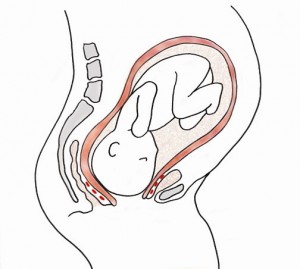
Each year, more than a quarter million women die in pregnancy and childbirth. Of those that do not perish, an unknown number suffer long-term health problems. The maternal injury with perhaps the most devastating aftermath is obstetric fistula. A fistula is a hole, or abnormal opening, in the birth canal, that results in chronic leakage of urine and/or feces.
Obstetric fistula due to obstructed labor is by far the most common form of genital fistula in the countries where we work, constituting an estimated 80-90% of all genital fistula cases. Obstetric fistula is usually caused by several days of obstructed labor, without timely medical intervention or cesarean section. During this time, the soft tissues of the pelvis are compressed between the baby’s head and the mother’s pelvic bones. The lack of blood flow causes tissue to die, creating a hole between the mother’s vagina and bladder or between the vagina and rectum, or both, and resulting in leakage.
Left with chronic leaking, women with obstetric fistula are often abandoned or neglected by their husbands and families, unable to work, and ostracized by their communities. Women who develop obstetric fistula usually have had a stillbirth, so they must also deal with the loss of a baby. Women with fistula are often among the most impoverished and vulnerable members of society.


